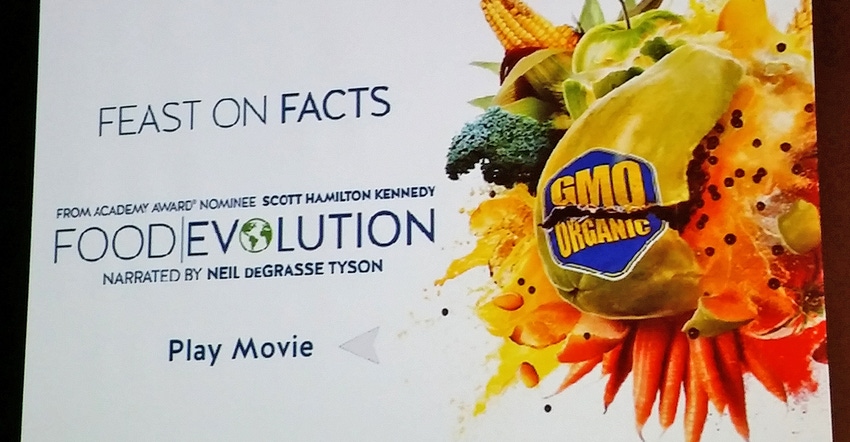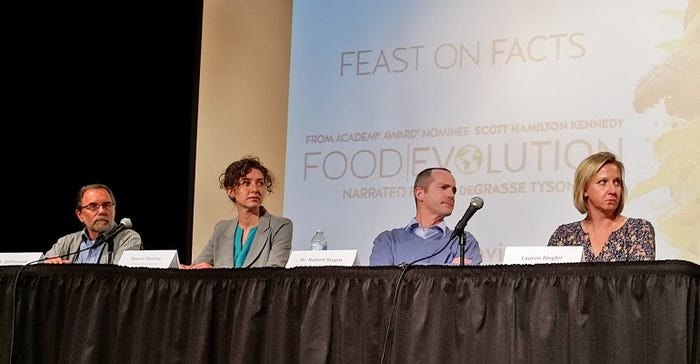October 5, 2017

“It's easier to fool people than to convince them that they have been fooled.”
― Author unknown (often attributed to Mark Twain)
There is a new pro-science documentary gradually making its way to screenings across the U.S.
Last week, "Food Evolution" was shown on both University of Minnesota Twin Cities campuses, followed by a panel discussion.

PANEL FOLLOW-UP: After viewing the documentary "Food Evolution" on the University of Minnesota St. Paul campus, a panel of professionals fielded questions and added to the discussion. They were Bill Pilacinski, an agricultural biotechnology consultant, WP Consulting; Sharon Perrone, a U-M graduate student in applied plant science; Bob Stupar, U-M associate professor in agronomy and plant genetics; and Lauren Biegler, a southwest Minnesota corn and soybean farmer.

I had learned about the movie a few months ago when it was first released this summer. I appreciated the opportunity to watch it locally, thanks to sponsorship by the U-M Agricultural Education Club, agricultural education, the communication and marketing program and the Applied Plant Science Club.
The film, funded by the Institute of Food Technologists, was produced to offer a more science-based conversation about food and not to advance any specific agenda. The nonprofit scientific organization, with a global membership of more than 17,000 public- and private-sector food scientists in more than 90 countries, was tired of seeing member research dismissed by fearmongering activists and media.
IFT reached out to filmmakers Scott Hamilton Kennedy and Trace Sheehan to produce a documentary that would provide a fact-based dialogue about the U.S. food system. The documentary is narrated by science communicator and astrophysicist Neil deGrasse Tyson.
Emphasis on GMO benefits
According to news reports, the documentary is creating quite the stir, since it focuses on the positive outcomes of genetic engineering — specifically highlighting genetically engineered papaya and banana. Some information also is shared about genetically engineered crops that are resistant to drought and disease.
Reports, too, indicate that the organic industry has criticized it and called it a corporate propaganda film, since some IFT staff have ties to DuPont and Monsanto. I’d like to point out here that IFT provided the funding for the film and then turned over complete creative control and final editing to the filmmakers, according to information on the documentary’s website.
I thought the 90-minute film did a good job of discussing science in general and outlining the GMO debate. Both pro-GMO and anti-GMO groups claim science is on their side. In the film, however, a few anti-GMO scientific papers were debunked. And it shared when British environmental activist Mark Lynas and popular "science guy" Bill Nye changed their anti-GMO stances and became pro-GMO. The film made certain its message about the science community came through: After 30 years of testing GMOs in 2,000-some experiments, multiple agencies and organizations conclude that GMOs are safe to eat and safe for the environment.
The panel discussion afterwards provided further food for thought. All four panelists thought the film helped open up dialogue for science and that it provided an entertaining response to anti-GMO videos. However, a couple panelists thought it needed broader science-based information than just focusing on the food safety angle.
I recommend watching the film and hope you may have that opportunity soon. The documentary is now available on Hulu. You also can schedule a screening for your organization.
For more information, visit foodevolutionmovie.com.
You May Also Like




